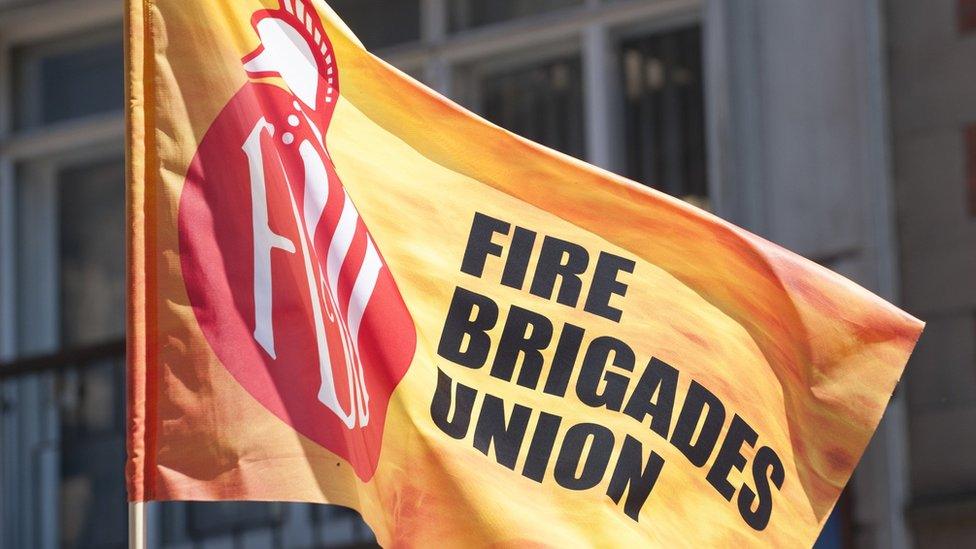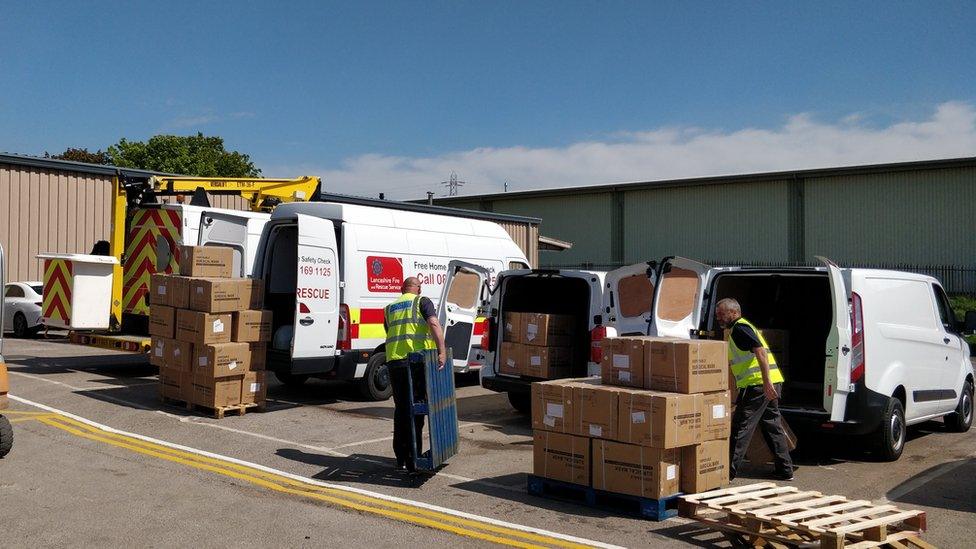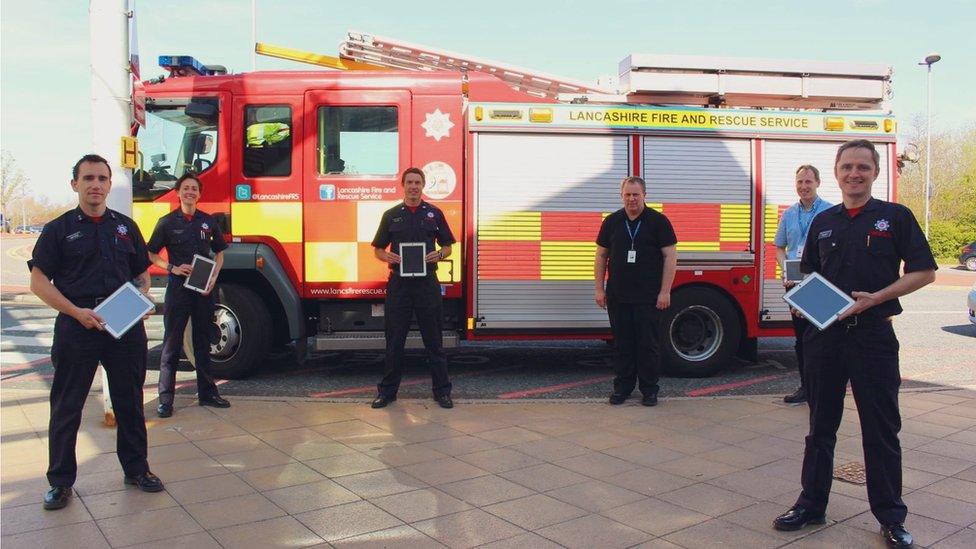Covid: Fire Brigades Union safety demands 'unworkable', says report
- Published

The Fire Brigades Union has held back firefighters from efforts to tackle the pandemic in England with "unreasonable" safety demands, a report claims.
In it, the fire service watchdog says the union has insisted on "unworkable" rules for testing and self-isolation.
Thousands of firefighters assisted health and emergency services last year but in December, as vaccinations began, the FBU asked members not to volunteer.
The union says it cannot be sure its members will be safe if they do.
That is because councils and fire chiefs have pulled out of an agreement on health protection measures, it added.
For most of last year the agreement allowed firefighters to perform a range of additional duties, including delivering meals, driving ambulances and transporting bodies.
Firefighters returning from roles in potential contact with Covid victims would spend several days self-isolating and being tested to show they were not infected.
By December, when there was the prospect of firefighters helping with vaccinations, a row over the deal resulted in the union giving new advice to members
The FBU said in message on 9 December: "At this time, members are asked not to volunteer and to suspend any expression of interest that they have registered until such time as satisfactory arrangements can be secured that allow a national agreement to be reached."
On 13 January, local councils, which employ firefighters, decided the agreement with the union "was no longer sustainable or appropriate", partly because of the requirements for staff to have tests and self-isolate.
They said these made it impossible to run the fire service flexibly. Fire chiefs argued that police officers and paramedics did not have to isolate and await test results.

The union says it cannot be sure its members will be safe if they volunteer
The FBU general secretary, Matt Wrack, told the BBC he still was not able to advise firefighters about additional Covid-related duties because the union did not know what the safety risks would be locally.
"I'm not prepared to ask people to volunteer if there aren't safety measures in place," he said. "I don't want to see a deadly virus brought into workplaces when we have measures in place which have avoided it in the past several months."
The fire minister, Lord Stephen Greenhalgh, said: "Brave firefighters have been prevented from stepping up to support the pandemic response because of the actions of the Fire Brigades Union."
Zoe Billingham, an inspector at Her Majesty's Inspectorate of Fire and Rescue Services, said many firefighters had contributed to the effort during the Covid crisis, but much more could have been done.
She described the union's position as "deeply regrettable" and "not what the public would expect of a fire service".
The inspectorate has released several reports calling for the modernisation of fire service working practices and criticising the FBU.

Lancashire Fire and Rescue Service said it had begun testing its staff twice a week
According to this one, the dispute between firefighters and their employers has held up vital work to protect lives.
In Greater Manchester requests to the fire service to help with NHS Track and Trace were delayed by 12 weeks.
In Cleveland, the fire and rescue service had to use non-operational support staff, rather than firefighters, to carry out temperature testing for the local authority.
In Suffolk and South Yorkshire, there were delays to plans for firefighters to help get into properties where residents were suffering from Covid.
The FBU says it was not given an opportunity to respond to these claims before the report was published. Mr Wrack dismissed it as poorly-sourced and politically-motivated.
Some fire services have reached agreements with local branches of the union instead so that they can volunteer for the vaccination effort.
Lancashire Fire and Rescue Service said it had begun testing its staff twice a week and those giving vaccinations had also received them first.